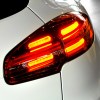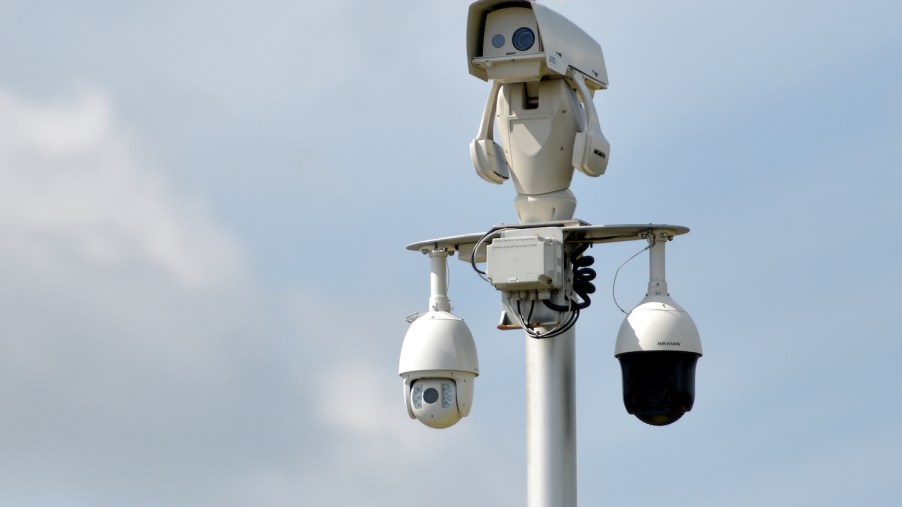
How Do Automatic License Plate Reader Systems Work?
An automatic license plate reader system includes a high-speed camera, sometimes capable of snapping pictures of 1,800 separate cars‘ license plate numbers one minute. It also includes a computer with a high-speed internet connection that can run these plates through local and state databases in real time. Finally, it needs a large database of license plates of interest. Many of these databases now compile all the data collected by license plate readers and thus travel records for millions of cars. Such systems are being installed at intersections, on police cars, and even used by private repo agents. This is Part Two of my series on license plate scanning technology and how its used.
What kind of cameras do police use to scan license plates?
Automatic license plate reader (ALPR) systems use an incredibly fast, relatively low-resolution camera. Most systems include two cameras to cover multiple lanes of traffic. These cameras must be able to record hundreds of plates each minute, but only with enough resolution that an algorithm can identify the tag numbers.
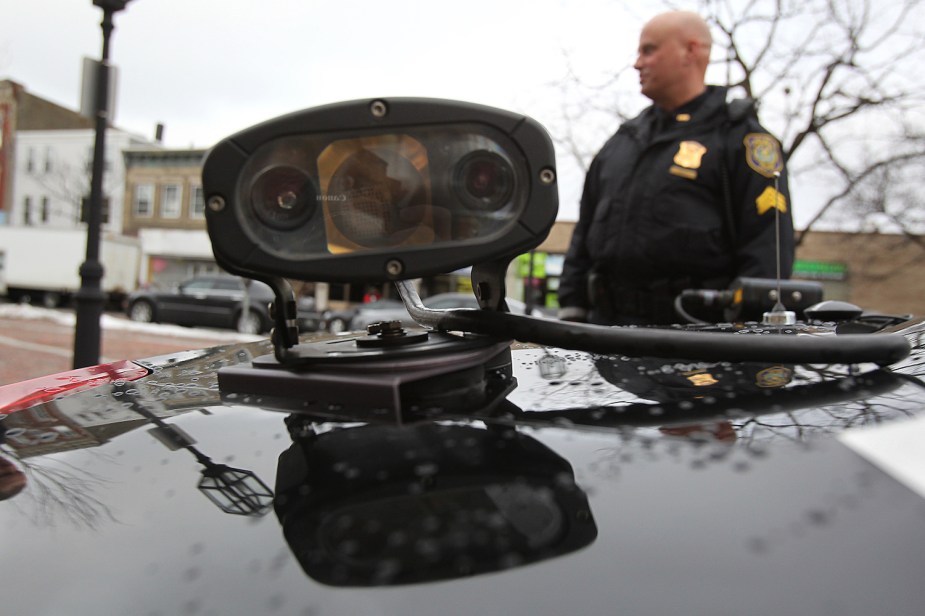
Some automatic license plate readers are mounted at intersections or on road signs. Others on bridges to identify cars and mail toll invoices.
But ALPR systems are also small enough that you can mount one on a moving car. If you have noticed a pair of blocky devices on the trunk or roof of your local police cars, the department is probably using ALPR.
Other towns mount ALPR systems on their parking enforcement vehicles—or even garbage trucks. This is to monitor all the vehicles parked on public streets, daily– according to the Wall Street Journal.
How do automatic license plate readers systems know which cars to flag?
An automatic license plate reader (ALPR) system includes a scanner to identify passing license plates. It also includes a computer to check those plates against any vehicles of interest. This may include vehicles flagged locally, on the state level, or Nationwide. Red flags range from suspended registration to a multi-state manhunt.
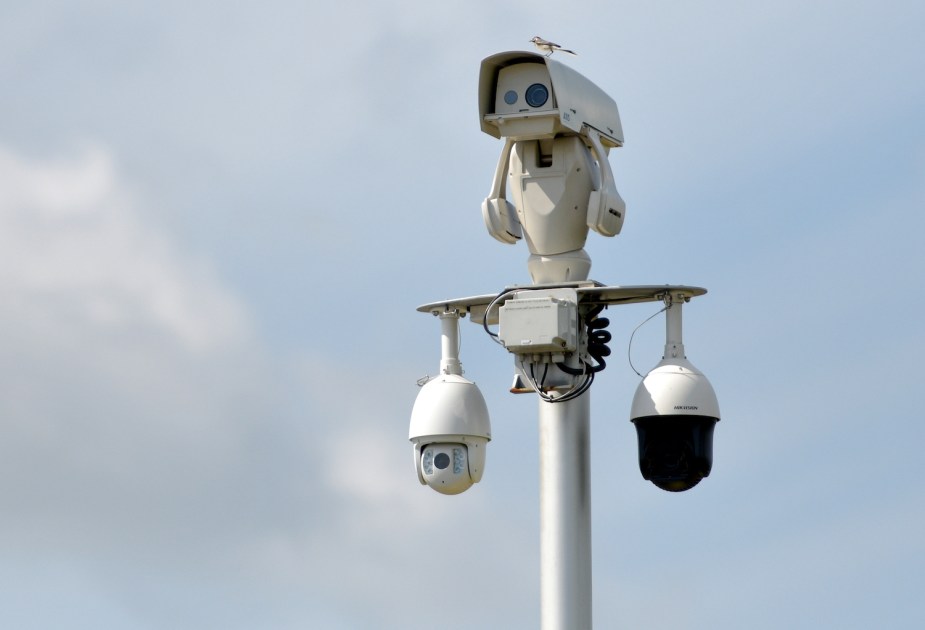
In the past, if the police were searching for a dangerous suspect, they could put out an All-points Bulletin (APB) on a specific vehicle. This would inform officers in other departments to look for those license plates while monitoring traffic.
The ALPR difference is that the system can search passing traffic—or parked cars—for vehicles of interest, with no police officer present. An ALPR system at an intersection, for example, pings a dispatcher if a vehicle of interest passes through. An ALPR system on a police car notifices the police officers in the car, no matter what else they are doing.
What database do automatic license plate reader systems search?
The database an ALPR is using completely depends on the owner—and the purpose—of the system. A police officers deploying an ALPR system from their cruiser will be looking for vehicles with an APB, as well as vehicles with suspended registration, and perhaps even vehicles registered to someone with a driver’s license restraint.
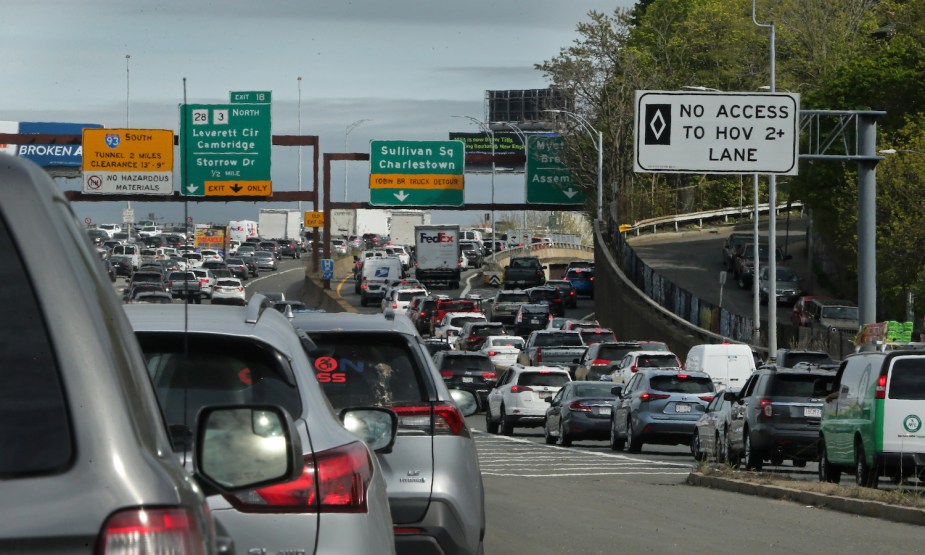
But police officers are not the only organizations using ALPR systems. Some repo agents use ALPR systems to quickly scan large parking lots for any vehicles a bank is looking to repossess. These ALPR users are probably not as interested in drives with a suspended license.
Much of the ALPR data also ends up in a database. Some police departments maintain information on what cars traveled which roads. Some departments have begun to pool this data. In addition, some ALPR equipment manufacturers also keep this data to sell to individuals such as repo agents.
Next, read about the legality of the government collecting and keeping this travel data, or see ALPR scanners in action in the video below:


